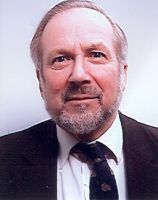Leendert Louwe Kooijmans, born in Arnhem, the Netherlands, in 1940. Ph.D. from Leiden University. Professor Emeritus of Prehistory at Leiden University.
Guest of the Rector (1 September 2005 – 31 December 2005)
THE TRANSITION TO FARMING IN THE LOWER RHINE BASIN
For years the spread of farming across prehistoric Europe has been described as a ‘wave of advance’, starting in the southeast of Europe, in Thessaly, reaching the southernmost territory of the Netherlands c. 5300 BC, and Britain and southern Scandinavia more than a millennium later. Ongoing research in many countries now demonstrate that in factthere were numerous regional processes of interaction between farmers – either immigrants or of native origins – and adjacent foraging communities. The Lower Rhine Basin appears to have been a region where the spread of the new method of subsistence ground to a halt for a a long period along the boundary of the northern margin of the loess zone. Recent excavations at Hardinxveld and Schipluiden allow us to chart this so-called neolithisation process in more detail and the two sites represent, respectively, the beginning and the later stages of development. Taking adjacent areas in Belgium and Germany into account would appear to be essential in understanding the information we have on the Dutch wetlands. The Schipluiden site gives us a glimpse of a community that had already settled down, but still relied for the greater part on natural resources for subsistence. This suggests that farming developments in the Netherlands lagged behind in comparisonto the surrounding countries.
